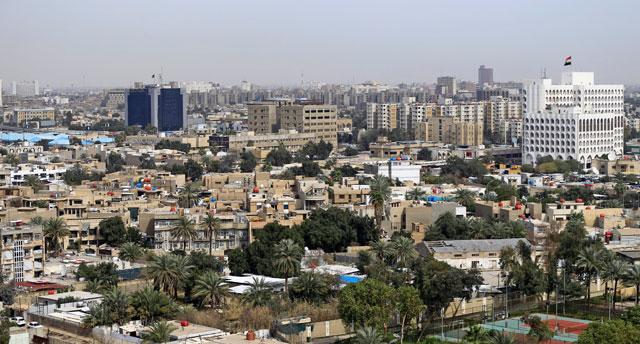You are here
Chalabi, key lobbyist for US-led invasion of Iraq, dies
By AFP - Nov 03,2015 - Last updated at Nov 03,2015
BAGHDAD — Ahmed Chalabi, a key lobbyist for the US-led invasion of Iraq who was blamed for providing false intelligence on weapons of mass destruction to justify it, died of a heart attack Tuesday.
The 71-year-old head of parliament's finance committee "died this morning of a heart attack", Prime Minister Haider Al Abadi said in a statement offering condolences for his death.
He "dedicated his life to opposing the dictatorial regime and played a major role in building the political process and democracy in Iraq", Abadi said.
In a statement on his death, the interior ministry described Chalabi as having worked for the "salvation of the Iraqi people from dictatorship".
Living in exile as head of the Iraqi National Congress (INC), which opposed Saddam Hussein, Chalabi became a White House favourite for information he provided which supported the US justification for attacking Iraq in 2003.
But he lost favour after the invasion when information regarding Saddam's alleged possession of weapons of mass destruction and links to Al Qaeda turned out to be false.
He was also accused of providing information to US foe Iran.
Iraqi police and US forces raided his home in May 2004 and seized documents and computers. The only formal charge laid was putting forged banknotes into circulation after the raid turned up a small number in his home.
Chalabi was long dogged by allegations of corruption and was convicted by a Jordanian court of embezzling funds from the collapsed Petra bank in 1992.
2003 'high point'
Born in October 1944 to a wealthy Baghdad family, Chalabi left the country in 1956 and spent most of his life in Britain and the United States, where he received a doctorate in mathematics.
He organised a Kurdish uprising in northern Iraq in the mid-1990s but hundreds of people were killed and he later fled, returning only when US-led invading forces took control.
Undaunted, he provided a steady stream of briefings which were used to bolster the case for the 2003 war.
Key figures in US president George W. Bush's administration hoped Chalabi and the INC might take over Iraq as an interim government after the fall of Saddam.
But because of its long years outside Iraq, his group was little known and little liked at home. Plans for a smooth and easy political transition fell apart, and instead Iraq was plagued by years of bloodshed.
Following the invasion, Chalabi, a secular Shiite, was one of the main proponents of the "de-Baathification" drive to remove alleged Saddam supporters from public life, which alienated Iraq's Sunni Arab minority and fuelled the insurgency against US-led forces.
Chalabi held the rotating presidency of the US-appointed Iraqi Governing Council after the invasion, served as deputy prime minister and also temporarily held the key oil portfolio, but he never reached the political heights to which he aspired.
Chalabi's legacy is defined by his role in the 2003 invasion and to a lesser extent de-Baathification, said Kirk Sowell, the publisher of the Inside Iraqi Politics newsletter.
"He never influenced any major policy... after 2003," Sowell said. "That was his high point."
Related Articles
BAGHDAD — For someone credited with being an architect of the nation, the grave of British archaeologist, writer, diplomat and spy Gertrude
BAGHDAD, Iraq — Iraq has ordered the seizure of assets that belonged to executed dictator Saddam Hussein and more than 4,200 officials from
LONDON — Former British prime minister Tony Blair was committed to joining the United States in the Iraq war a year before the 2003 invasion













